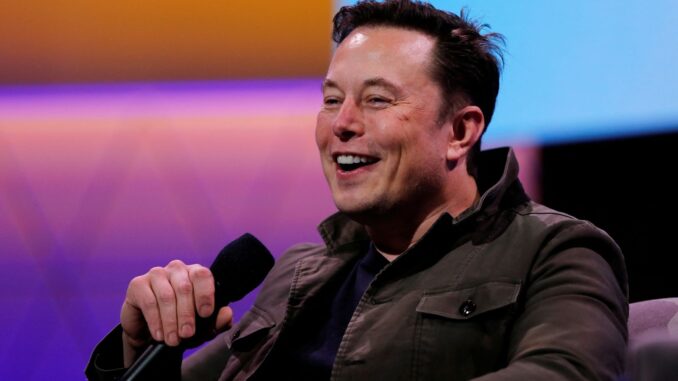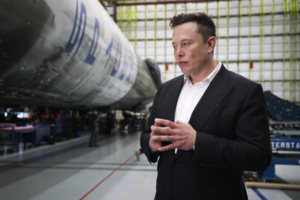
Naomi Alderman is exceptional at world-building. We knew this already from her 2016 bestseller The Power, in which she imagined the patriarchy being overturned when women developed an ability to release electric jolts from their fingers.
The way Alderman took everyday life and twisted it into something both unfamiliar yet totally recognizable was extraordinary; it was no wonder it became an agenda-setting novel that won the Women’s Prize in 2017, was named a book of the year by everyone from Barack Obama to Bill Gates, and was recently adapted into a TV series for Amazon Prime.
Here, in The Future, Alderman pulls off that same feat: opening the pages of her first novel since The Power is less like reading and more like stepping into a parallel universe. Once inside, we are confronted with an environment where a handful of entitled tech billionaires are exploiting their power to the destruction of the planet. So far, so easy to relate to real life.
But Alderman has clearly had a lot of fun with imagining futurist technology – we have concepts such as private weather systems (rain can be swapped for sun) and screens that pop up from sleeve cuffs. The atmosphere, meanwhile, is constantly teetering on the brink of apocalypse, where “preppers” and forums dedicated to survivalism are the norm.

The plot is as intricate as the setting. The book begins as three tech chief executives – social media mogul Lenk Sketlish, computing boss Ellen Bywater, and chief executive of an Amazon-like business giant Zimri Nommik – have been informed by AI that the world is about to end. The cause? A pandemic worse than Covid. The trio board a private jet to a secret doomsday bunker, and the final sentence of this prologue sums up their self-centred elitism perfectly: “They weren’t leaving the world, the world was leaving them”.
The Future then zips back in time “a few months before the end of the world” and across the globe to Singapore, just as Chinese-American survivalist influencer Lai Zhen is the subject of an assassination attempt. Despite the videos she has made about how to master your fear in emergency situations, it turns out all she hears inside her head as shots are fired is “her own stupid voice saying: You might piss your pants”.
Next, we rewind another six months, and are introduced to Martha Einkorn, who grew up in an oppressive religious cult and now works in California as an assistant to Sketlish. Martha and Zhen meet at a conference in London and quickly begin an affair, but the story properly kicks off when we learn Martha is plotting with a group of rebels to take control away from the Silicon Valley billionaires.
In this sense, The Future is a Russian doll of a book: a love story wrapped up in a tale of a heist, all of which is inside a fable about big tech, climate change, morality, and inequality.
